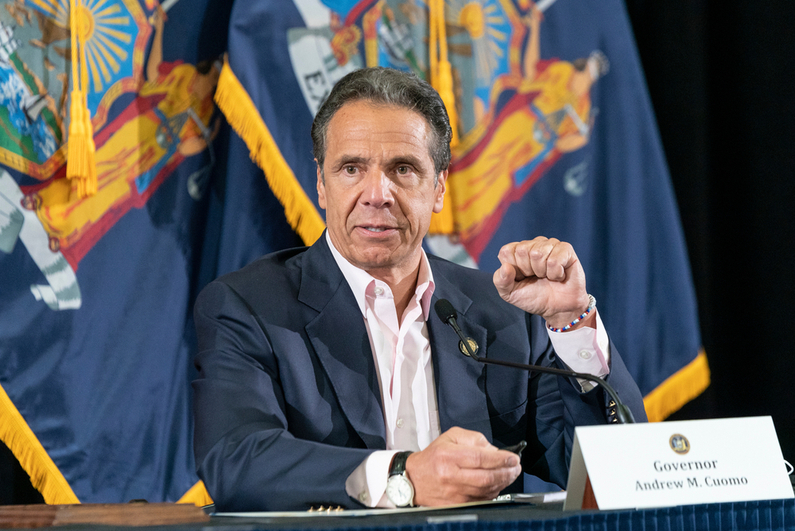Taking a hard line
New York Governor Andrew Cuomo has confirmed that he would still prefer a state-run model for New York’s mobile sports betting market. He has reaffirmed his support for the lottery-centric system, despite already submitting a sports betting plan with a multi-provider approach.
This is not a moneymaker for private interests to collect just more tax revenue.”
Cuomo made the comments on Tuesday while presenting the state’s 2022 budget in Albany. The governor argued that a state-run model would provide the most profits for the state, rather than accumulating wealth for casinos and their supporters. He said: “This is not a moneymaker for private interests to collect just more tax revenue. We want the actual revenue from the sports betting.”
The governor’s comments reaffirm a position he made clear to reporters earlier this month. Cuomo suggested, however, that he may have changed his mind after proposing a mobile sports betting plan with a multiple provider approach in mid-January.
Finding the right model
In early January, Gov. Cuomo established his intention to include a mobile sports betting bill in his 2021 policy proposals. In the past, the governor has opposed such legislation, but he said the coronavirus crisis and the resulting state budget deficit had caused him to reconsider.
mobile betting could bring in $500m per year in state revenue
The governor said the state must raise $15bn per year in the next two budget cycles. New York’s budget director Robert Mujica believes mobile betting could bring in $500m per year in state revenue. The most beneficial model for such a market is still up for debate.
Despite initially establishing support for a state-run model, Cuomo submitted a proposal for a multiple provider market in his State of the State address earlier this month. This would put the State Gaming Commission in charge of receiving operator applications. The governor’s latest comments, though, suggest he is still backing a state-run market.
Multi-provider legislation makes progress
Two lawmakers are spearheading efforts to pass New York sports betting legislation. On January 7, Senator Joseph Addabbo Jr. and Assemblyman Gary Pretlow jointly filed S1183 and A1257. Together, the bills set out a framework for a multiple provider mobile market. The legislation would permit the Empire State’s commercial casinos to partner with two mobile operators each.
The State Senate Committee on Racing, Gaming and Wagering passed S1183 on Tuesday. Next, it will go to the state Senate’s Finance Committee. Cuomo has made his stance clear, however, and legislation has failed to make it through the New York Assembly in the past because of the governor’s opposition.
Commenting on Cuomo’s stance last week, Addabbo said a multi-provider model was necessary in order to compete with neighboring New Jersey. He said: “The more inclusion we have and the more opportunities and outlets we can provide to people means it will provide more job creation and more revenue for the state.”
Addabbo and Pretlow say their bill can generate $79m in annual revenue for the state based on “conservative market estimates.”
